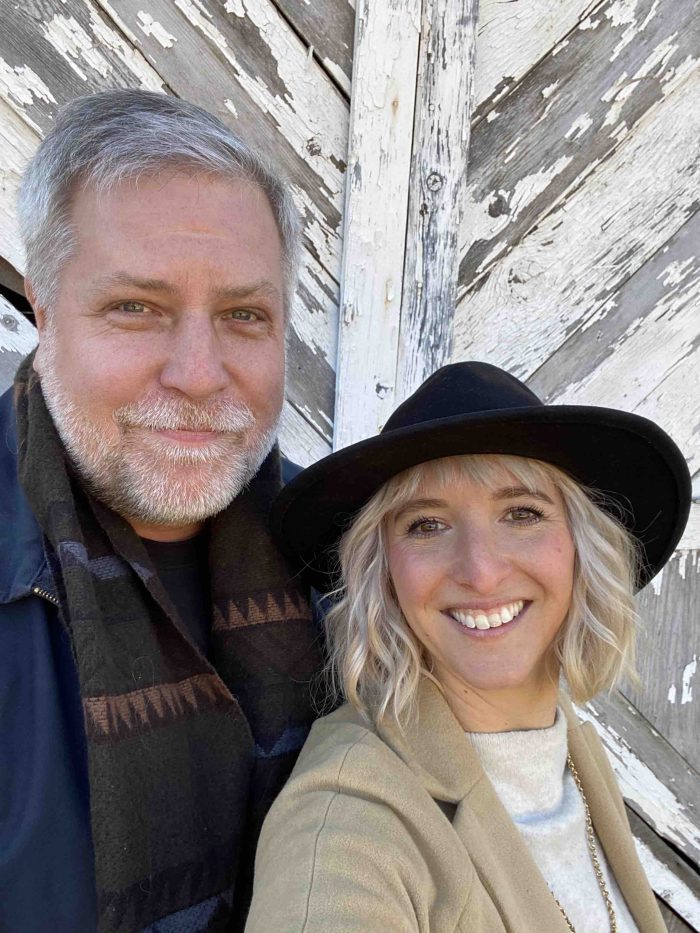Vulnerability is a buzzword which has made its way through the world of personal development into the mainstream consciousness. As a relationship coach I wholeheartedly agree that vulnerability is the pathway to connection, but recently it feels like we’ve misunderstood the assignment.
Looking back, I thought I knew what vulnerability meant, especially as the daughter of a psychologist. I believed it was about sharing difficult stories from my past with my partner as a way to get to know each other better. This included talking about my childhood traumas and past relationship fails. Once I was done sharing, I thought I had filled my vulnerability quota, and this now meant we were “close” because we knew each other’s deep, dark secrets. Of course, these stories were curated by me so that I came off as just enough of a victim but also a resilient hero. Bleh!
Turns out, vulnerability is much more than swapping war stories. You can’t just dump your emotional baggage on someone and expect that to create a solid foundation for your relationship. That’s just trauma bonding. Vulnerability is about allowing someone else to truly see you for who you are and being willing to see them for who they are. This is an ongoing process and most of us weren’t given the tools to do so.
This is where I find Human Design to be the most effective. For those who don’t know, Human Design creates a blueprint of your energetic makeup. This chart reveals many details about your personality, both on the conscious and unconscious levels.
As complex creatures we have a lot of unique needs, but what seems to elude us is the ability to communicate them. Human Design offers a way to give language to all the things we already know about ourselves, but don’t quite have the words to express. It’s a way to quantify our wants and unlock a deeper understanding of ourselves and our boundaries.
What keeps us from truly connecting with others is our conditioning. From an early age we’ve gotten the message (perhaps directly, perhaps indirectly) that there is something fundamentally wrong with us. So, we create an avatar of ourselves that we believe will be more acceptable to the world. Ironically, we do this in order to feel more connected to others, but all it does is create a wall. Eventually we forget who we are, and this persona becomes our reality.
Intimate relationships are the hardest places to maintain this avatar. The truth of who you are will inevitably bubble to the surface, and the way it gets expressed varies from person to person. I find that almost all fights in relationships stem from a desire to protect the identity of the avatar and a deep fear of rejection when faced with the possibility of your true nature being revealed.
A personal example is that I found out through my design that I am a hermit, a person who needs a lot of alone time to recharge my social battery. This definitely did not fit into my persona which was that of a social butterfly. I was out 3-4 times a week. My first husband and I met at a party. He had a big group of friends and so did I, so we were constantly being invited to events. Behind closed doors this felt absolutely suffocating, but I had no idea why. So I would pick fights with him over nothing which would ensure that he would storm out and leave me alone for a few hours. Aaaaahhhh, I finally had some me time. As dysfunctional as this was, I had no idea how else to have my needs met.
Everything changed when I met Human Design. I felt a relief wash over me as I heard that my hermit nature needs a lot more introspection and solitude. I realized that there is nothing wrong with me. That my design is perfect and that I just misunderstood a lot of what I was experiencing inside of myself. It gave me the words to express what I needed, and because I no longer felt broken, I was able to advocate for myself like I never had before without blame or shame.
When I started dating my second husband, I used Human Design as a tool to communicate my needs and assess what his might be based on his chart. From the beginning I expressed my need for alone time, giving him the opportunity to honor my request. Every time we make plans, he still checks in to see if I am being overwhelmed by the socializing. This is just one small example which makes a HUGE difference when it comes to the harmony in our partnership.
I was also very open with him about my past as I always had been. This time it wasn’t about trauma bonding or making myself out to be some martyr. It was about expressing what I had learned and how I plan to do things differently going forward. Being this open created a safe space for him to be vulnerable too. This was how we built a safe space and solid foundation for our marriage. We never place blame on each other or hold each other accountable if we aren’t comfortable with something. Instead, we ask questions and try to understand the other person’s perspective without taking it personally.
What Human Design helps us see is that we are each as unique as a fingerprint. Needs vary drastically from person to person and have nothing to do with another. My need for alone time has nothing to do with anyone else. It’s not personal it’s just who I am. Being able to express that has meant everything to me. I have never felt more seen and more heard, and I couldn’t have done it without Human Design.
This is honest communication. This is honoring each other in a deep way. This is true vulnerability.
Zsuzsi Evans is a Human Design Relationship Coach in Mount Shasta, CA. She has been featured on the Lit AF Podcast, the Rose Yoga Podcast, and as a keynote speaker at the High Desert Human Design conference. If you would like to get your free Human Design chart, visit her site here.

 Share on bsky
Share on bsky





Read 0 comments and reply